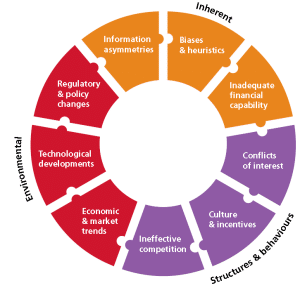Financial Technology has grown so much over the last few years that it now has a standardised, globally understood abbreviation: FinTech. I’m sure you’ve heard by now that FinTech is saving and/or destroying the banking industry, depending on who you listen to. FinTech is undeniably a massive revolution in banking; banks have always been good at utilising technology once it exists but have rarely been as good at keeping up with the absolute forefront of new developments, and knowing how to use them to best suit the customer.
What do we really mean by the term? FinTech covers multiple different fields, all of which are changing the landscape of modern banking – peer-to-peer lending solutions such as Funding Circle and Lendable, investment platforms both retail (Nutmeg, Kapitall) and institutional (SumZero, Contix) personal finance providers like Credit Karma and CoverHound, startups like Starling Bank who want to provide complete branchless banking via an app and perhaps the biggest group – payment providers, from the long-established PayPal to the recently popular Venmo and new challengers like GoCardless, Transferwise and Astropay.
New, start-up FinTech solutions are allowing people to get the kind of instant, personalized, portable solution to banking that they’ve come to expect from almost every other industry for a long time now. Why stand in line at a bank (that you’ve already had to take the time to physically go to) when you could open an account right from your sofa with a few taps on your phone? The appeal of the all-online all-app banking experience is very clear.
With so many of these new FinTech companies doing so well, it’s easy to see why some view this as an attack on big bank’s traditional markets, with some industry figures starting to worry that if they don’t move fast they could lose out on a huge number of younger customers. Established banks have recognised this risk with many adopting strategies to give them a foothold in the FinTech market. Many (Lloyds, Wells Fargo, Barclays, Bank of Ireland, Bank Leumi, many more) are running startup programmes to incubate FinTech companies, with a smaller percentage taking the direct route and outright acquiring FinTech companies (Citi, Barclays again) or partnering with them (HSBC, Santander). [This piece by Avinash Swamy has a great breakdown of who’s doing what]
But will it be enough? There’s a very real possibility of permanently losing a significant portion of their customer base to FinTech companies if they don’t provide solutions that people find, at the very least, as quick and convenient as their new competitors. The age when it was accepted that everyone needed a bank account with a high street bank and you’d have to go into a branch occasionally is coming to an end, and fast.
For more on the Fintech revolution and how customers are responding, read our later blog post here




